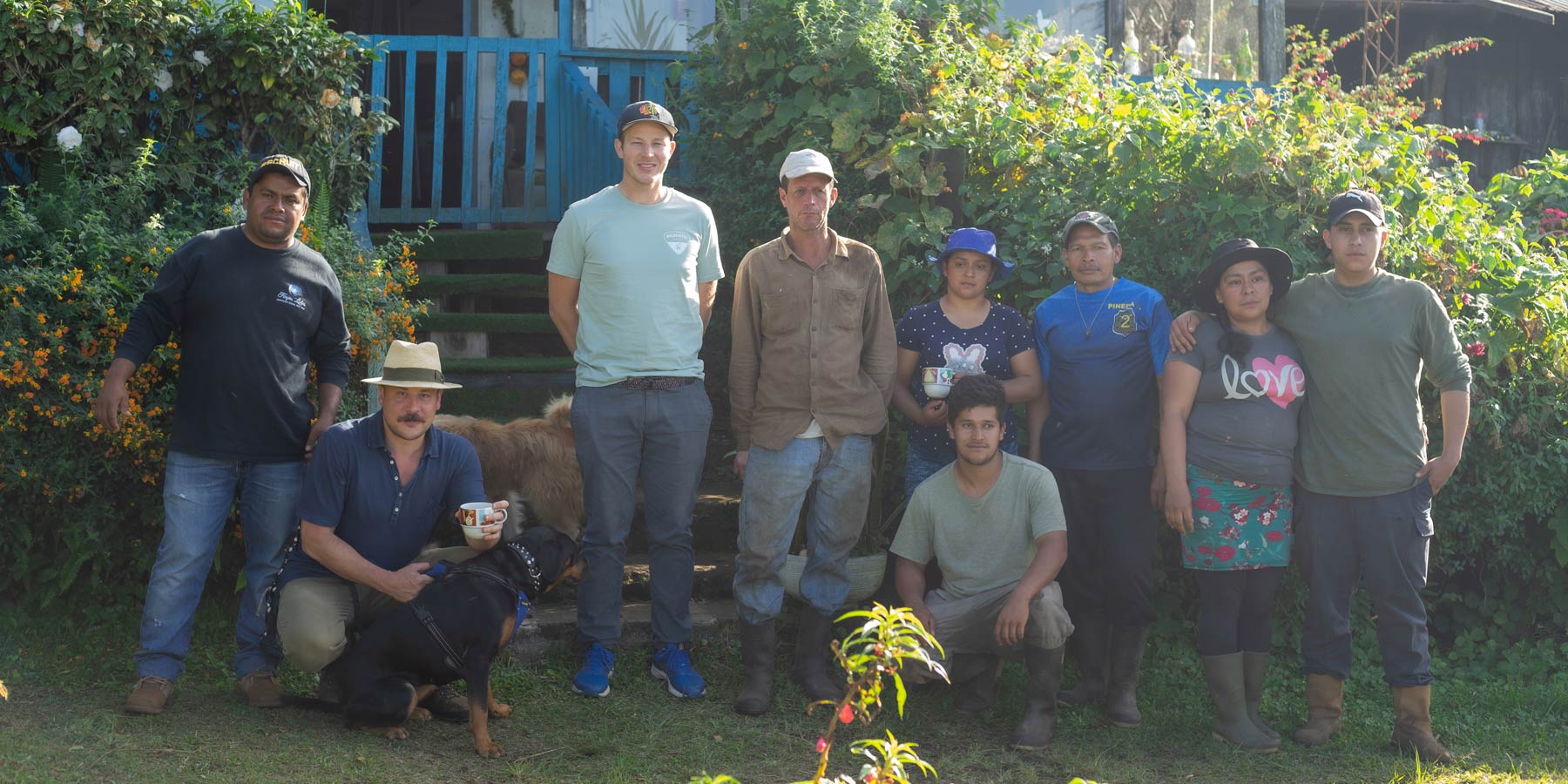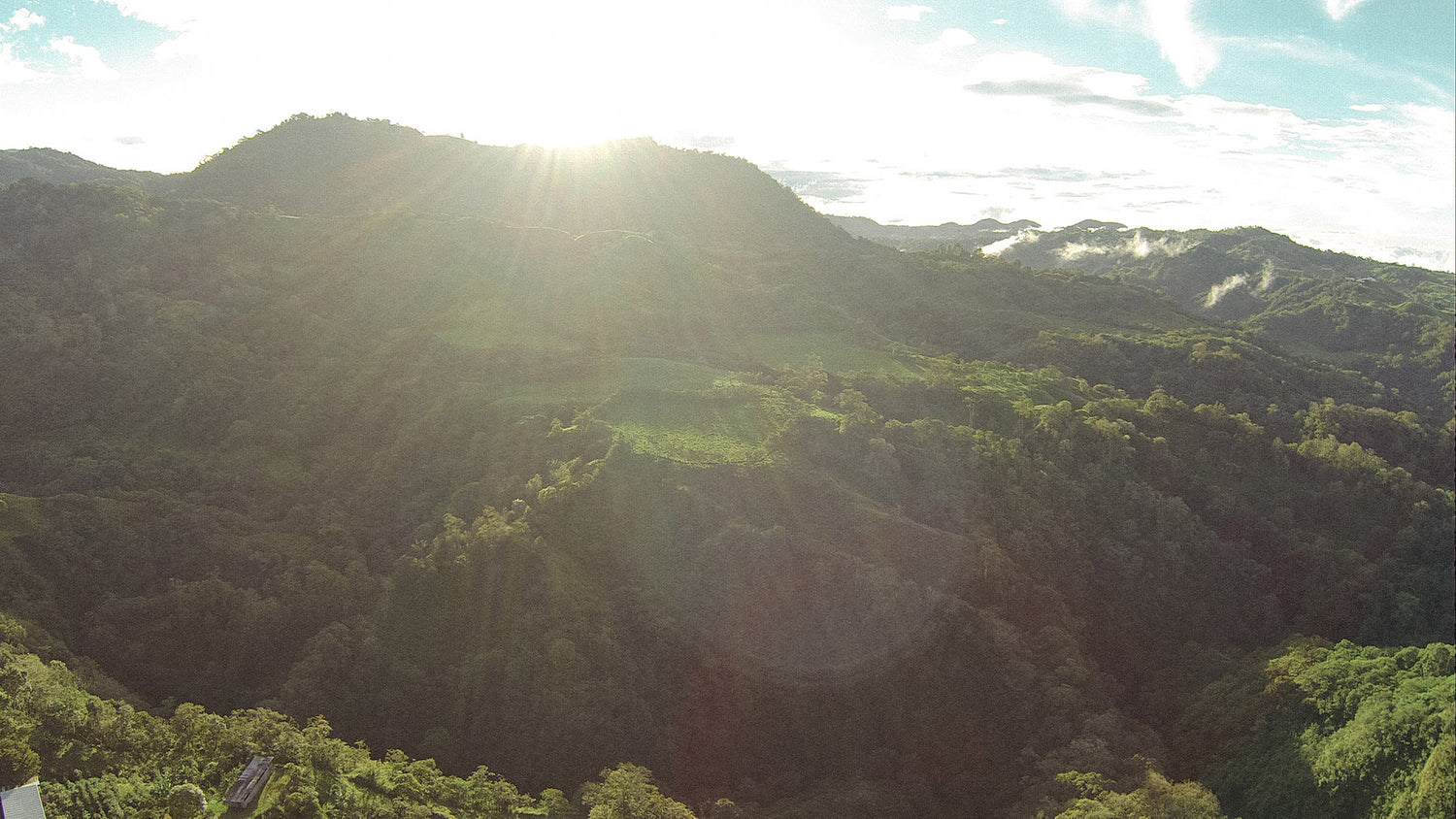El Salvador is the smallest country in Central America and is known for its ideal conditions for growing coffee . Coffee has been cultivated in El Salvador since the middle of the 18th century. Initially, the cherries were grown exclusively for personal consumption. Around 1850 , farmers began to professionalize cultivation and export the beans. The small country quickly developed into one of the largest coffee exporters. The unique quality and harmonious taste of Salvadoran coffee were primarily responsible for this success.

Wide variety of varieties
Only Arabica varieties are cultivated in El Salvador. The cultivation of the Bourbon variety is particularly important. But the local varieties Pacas & Pacamara are also becoming increasingly popular. Thanks to the nutrient-rich soil and the optimal climate, numerous other varieties are now also being cultivated. Leaf rust-resistant varieties such as Catimor have been in great demand in recent years, as leaf rust has destroyed numerous plantations in recent years. But more unusual varieties for the region are now being cultivated again: Kenya, Huila, Yellow Tabi, Limu, SL28, SL34 & even Geisha!
The cultivation in detail
El Salvador is known for its volcanoes, which produce exceptionally nutrient-rich soils thanks to the ash and volcanic rock. The country of origin is also impressive due to its proximity to the equator, which is why ideal climatic conditions prevail.
The volcano also protects the coffee plants from the direct sea breeze. Too much influence from the salt water damages the coffee plants in the long term. The volcano also protects the coffee cherries from excessive sunlight. The coffee in El Salvador is grown at an altitude of around 1,200m . Another advantage in the country of origin, El Salvador, is the short trade routes, which make access to the export ports much easier.

Problems in the country of origin El Salvador
In the past, there have always been problems with coffee cultivation and trade in El Salvador . This began in the past. Around 1980, the Salvadoran government destroyed almost the entire coffee sector in its own country by nationalizing almost all trading steps. All farms over 500 hectares were expropriated , and all harvests had to be sold to the state. In 2001, the price of coffee fell so low that it was no longer worth harvesting. Since 2010, the first effects of climate change have become visible. Finally, an uncontrollable outbreak of leaf rust caused coffee cultivation to almost completely cease.

Development since 2013
The recovery from the numerous influences that have massively affected coffee cultivation in El Salvador is still difficult . To make matters worse, there are shady coffee traders who sell the farmers' coffee at the ports at rock-bottom prices. In addition, political unrest, economic instability and high crime rates make the trade and cultivation of coffee difficult.
The result!
The major consequences of all these circumstances are self-explanatory. Most coffee farmers are turning away from growing coffee and focusing on alternative agricultural products. This has turned one of the largest coffee producers in the world into a country of origin in which coffee cultivation is declining steadily. Nevertheless, there are still numerous small farmers who sell their coffee at the lowest prices at the ports. Larger farms also still exist. However, the effects of climate change are already noticeable, which is why the trend in coffee cultivation is also pointing downwards.
Our coffee from El Salvador
To ensure that coffee cultivation remains a viable option in the future, we have addressed all of these issues together with our partner coffee producer Rodolfo Ruffatti and founded the Buenos Aires Coffee School Project . With this project, we are specifically promoting cultivation and trade in the Santa Ana region of Buenos Aires. The aim is not just to cultivate our own coffee.
All farmers in the area should benefit equally. For this purpose , a central processing station has been leased, which also serves as a training center for the farmers . In addition, a central finca serves as a space for the cultivation of new varieties. The finca also houses a tree nursery where new varieties are specifically cultivated.

Organic farming in the foreground
The ecological aspect in particular plays a major role in our Coffee School Project! In recent years, a lot of work has been done in El Salvador with chemical pesticides and glyphosate. In general, cultivation was geared more towards quantity than quality. These chemical agents are known to be unhealthy in the long term - both for the farm workers and for the flora and fauna in and around the finca.
Our solution: Organic Farming . This involves producing our own natural pesticides and fertilizers from microorganisms , which in turn are obtained from the waste products of the processing station. The microorganisms also promote the sustainable regeneration of the nutrient-rich soils. This creates a biodynamic cycle that should ensure excellent coffee harvests in the future.

Which coffees you can expect from us in the future!
You can already discover the excellent Coffee School El Salvador Espresso in our online shop. The blend from various farmers is a classic nutty, chocolaty espresso. By purchasing each bag, you support the Coffee School Project and help farmers gain a new perspective in coffee cultivation. The first microlots from El Salvador will also be released this year. Excellent cup profiles with complex flavors await you. The first large harvests are expected in around 3 years. We are delighted to share this great project with you.


